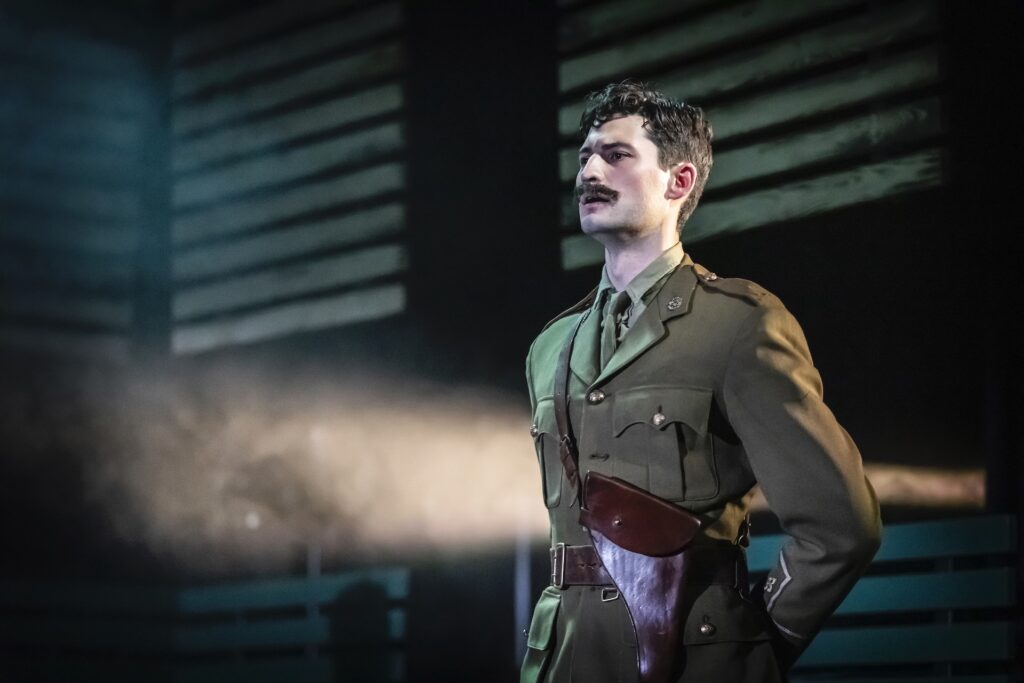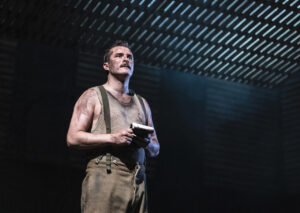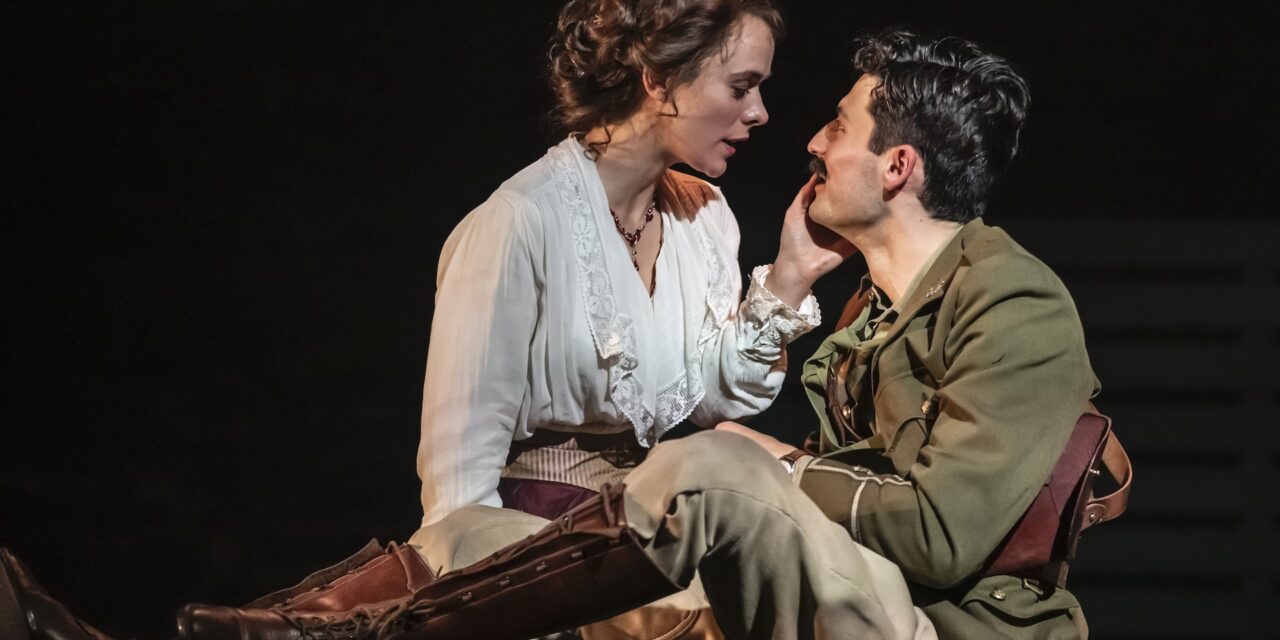
25 – 30 November
The problem facing any theatre company attempting to describe the devastation of the First World War, at least in a contemporary production, is finding a new approach. The subject has been tackled from many angles in television, film and stage. We know how awful it was. In recent times War Horse and Private Peaceful on stage and Blackadder Goes Forth on the television stick in the mind visually for their novelty of approach and for their emotional impact. The latter in particular, for its acerbic treatment of the banality and ludicrous waste of war, had the most memorable of final freeze frames in all television which somehow summed up the whole wretchedness of the conflict.
The book by Sebastian Faulks, on which this production is based, gave a structural novelty in the way the present day interlinks with the past. In this stage production, however, the present day is merely a device to introduce the love story which forms the emotional core of the play. What remains is a conventional story of love and loss in a time of upheaval. A young, somewhat gauche Englishman, Stephen Wraysford (James Esler) falls in love with an attractive French woman, Isabelle Azaire (Charlie Russell) who is in a loveless marriage to a brutal businessman, René Azaire (Sargon Yelda). He turns a blind eye to the unwanted attentions to his wife from the lascivious local politician, Berard (Roger Ringrose) whose support he needs in dealing with workforce unrest in his textile factory. Isabelle, whose heartfelt, “I am just a person who wanted to be loved”, runs away with Stephen only for the war to tear them apart. This first of three acts, perhaps handicapped by the conventionality of the story, seemed stilted and leaden.
The next section somehow missed the claustrophobia and misery in the trenches as we learned of the nihilism to which Stephen, unwilling to take any leave from the front, had become prey. A male bonding of sorts followed his rescue by sapper, Jack Firebrace, played with honest, working class vim by Max Bowden. By way of contrast, Jack is desperate to leave the front to visit his sick son back in England.

After his recovery Stephen searches for Isabelle only to find she had become the partner of a German soldier. There is a moment of tension as he seemingly falls for Isabelle’s attractive and stalwart sister, Jeanne (Natalie Radmall-Quirke) who brings the incipient relationship to an end when she realizes he is still in love with Isabelle who he now knows to have borne his child. The final tableau as the men go over the top has a strong echo of the Blackadder ending and enjoys the same dramatic irony that all WWI trench sagas do in that we know what happens.
Plays and other works about WWI are all worthy and have their hearts in the right place as this show surely does. However the episodic and literary nature of much of the play is a hindrance to a sustained dramatic narrative, which despite some fine performances, is ultimately unsatisfying.
★★★☆☆ Graham Wyles, 27 November 2024
Photo credit: Pamela Raith Photography


